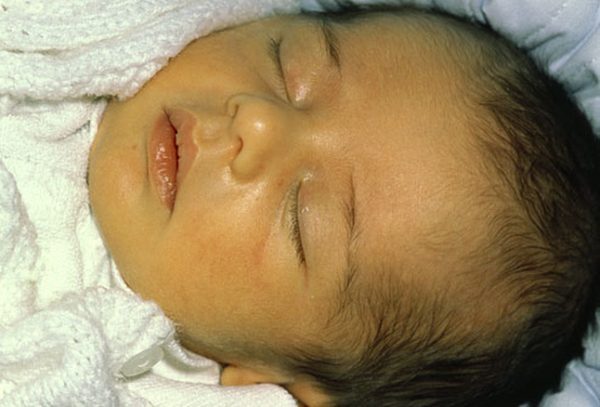
Male infertility has an equal effect on the chances of successful conception. It is necessary to go over both male and female fertility health when the couple is trying to conceive. A couple is said to face infertility problems when they are unable to conceive after trying constantly for one year. In this blog, we are going to let you know all that you need to understand about male infertility problems and treatment options and how to go about it.
What is male infertility?
A man is considered infertile if he is unable to impregnate his partner. If the female partner is unable to conceive even after successfully trying for one year, then it is supposedly called infertility. If the female reproductive system is functioning perfectly fine, then the chances for infertility might be because of the poorly functioning male reproductive system.
Male infertility is as common as female infertility, and there is quite a crowd that is unable to conceive due to male infertility problems.
Causes of male infertility
There are multiple reasons and causes for male infertility. Anything that doesn’t allow the cell to form into sperm, anything that restricts its movement to reach the egg, and the like, can be considered a symptom of male infertility. The different causes of male infertility are as follows:
-
Sperm Disorders
The most common sperm disorders are:
- The sperm doesn’t fully mature.
- The sperm are in odd shapes.
- The sperm are made in lower numbers.
- The sperm aren’t made at all.
- The sperm is not moving in the right direction.
The low sperm numbers and even the motility of the sperm can be due to genetic or lifestyle reasons. Chronic consumption of alcohol and the habit of smoking can have dire effects on the sperm count. Low sperm numbers can be due to kidney failure, childhood infections such as mumps, or even hormonal imbalances such as a low level of testosterone.
The damage to the reproductive system, which can be a birth defect or because of blockages in the tubes, can also be a contributing factor to infertility in men.
2. Varicoceles
When someone comes across swollen veins on their scrotum, it is a cause for concern. Such swollen veins are known as varicoceles. These swollen veins mostly indicate that the person is facing infertility, and the ratio roughly corresponds to 40% males out of 100. When the veins are damaged, the blood flow required for sperm growth becomes restricted, which eventually affects the quality of the sperm produced. The temperature in the scrotum also becomes too warm, which is not ideal for the production of sperm.
3. Retrograde Ejaculation
Retrograde ejaculation happens when the sperm, instead of coming out of the penis, retrieves and moves back towards the bladder. Even if the sperm quality is top-notch, it can only help conceive when it is properly ejaculated into the vagina for conception. This condition can happen due to surgeries or because of issues with the nervous system. You can conform to retrograde ejaculation, if the urine is cloudy.
4. Immunologic Infertility
It is kind of an autoimmune condition where the antibodies developed inside one’s body attack the sperm and kill it. Antibodies are usually produced in the body when it is fighting against an injury or infection. The antibodies make it harder for the sperm to meet its goal of entering the fallopian tube.
5. Medication
Some medicines that are taken for certain health conditions can affect a person’s sperm health. The medications for disease are:
- High blood pressure
- Cancer
- Depression
- Arthritis
- Anxiety
Symptoms of male infertility
The inability to conceive itself is a symptom that shows infertility. The physical and emotional struggle that one faces can be the most prominent symptom and require medical attention as soon as possible. Consult with a good male infertility centre in Trivandrum, where they will guide you in the right direction and help you give that catered support even while handling the infertility treatments on the side.
The diagnosis will be made once a couple shows an inability to conceive, even after trying unprotected sex for a year. Then the physical examination of the patient is done, which will help understand whether the patient is facing general health discomfort. Further, the medical practitioner may give some key ideas, and if that is also not working, the next step is to conduct some analysis, and for those, certain tests are performed, like:
- Sperm Volume
- pH levels
- Sperm Concentration
- Sperm Count
- Velocity of the sperm
- Linearity
- Viscosity
- Colour
Treatment Options for Male Infertility
Male infertility is no longer a cause of concern, and with the medical field expanding so well, there are multiple options that can be considered for helping a couple realise their dreams of becoming parents. The treatment options change with the reason for infertility, and they are as follows:
- Medications: Hormone therapy to increase the number of sperm
- Lifestyle changes: Maintaining a healthy body weight, quitting smoking and drinking, and saying no to recreational drugs to help with sperm quality and motility
- Surgeries:
- Vasectomy Reversal: It is an outpatient procedure. A surgeon helps to reconnect the vas deferens, which is a coiled tube that helps carry the sperm out of the testes. The reconnection of the tube is done by viewing it through a surgical microscope.
- Vasoepididymostomy: If there are any kinds of blockages in the vas deferens, then those can be removed with the help of this procedure. The tube is split using the surgical procedure, and then the blockage is removed and finally sewed back in after it is done. A blockage can also happen because of an infection or injury.
- Intracytoplasmic sperm injection: ICSI is a boon for someone who has been going through male infertility. In this procedure, sperm is retrieved from a male’s body and then physically injected into the egg produced by the female body.
- In vitro fertilization: This has become a common practise for couples who are having difficulty conceiving. In IVF treatment, the female body is injected with fertility medicines, which help produce multiple eggs of high quality. These eggs are then retrieved from the body using a small procedure. Then sperm and egg are allowed to fuse under laboratory conditions, and when the embryo forms, it is monitored for around five days. Multiple embryos are then placed in the uterus through the cervix.
Male infertility can be prevented by adopting a healthy lifestyle. But there are certain cases where, even with the right lifestyle, there might be chances for infertility. Getting the right advice from the right medical practitioner is the best way to know what steps to take next.
KJK Hospital has been serving the community for over two decades now. The reason why we are the one-stop solution is because of the professional panel of best infertility doctors in Trivandrum and the state-of-the art infrastructure that we provide to our patients, who put their faith in us. Choose us for the right guidance when it comes to all queries relating to your infertility issues.
Feel free to contact us for appointments and queries.
Phone Numbers: 0471-2544080, 2544706
Email: info@kjkhospital.com
Subscribe to KJK Hospital YouTube Channel for more informative videos on women’s health






